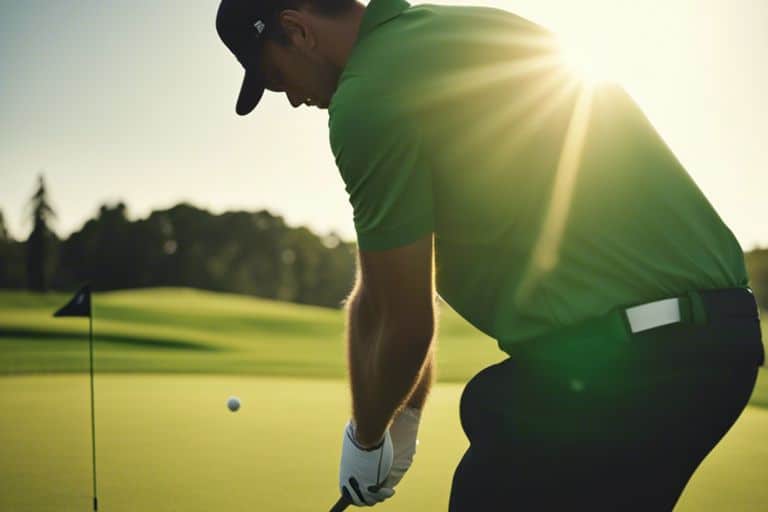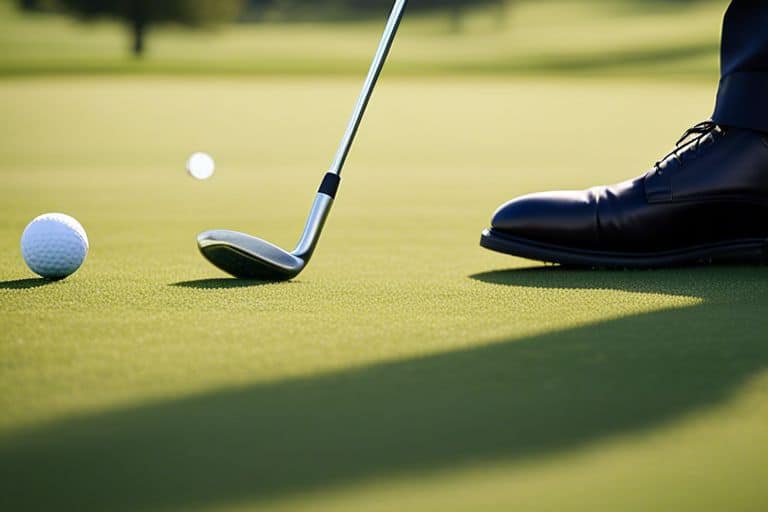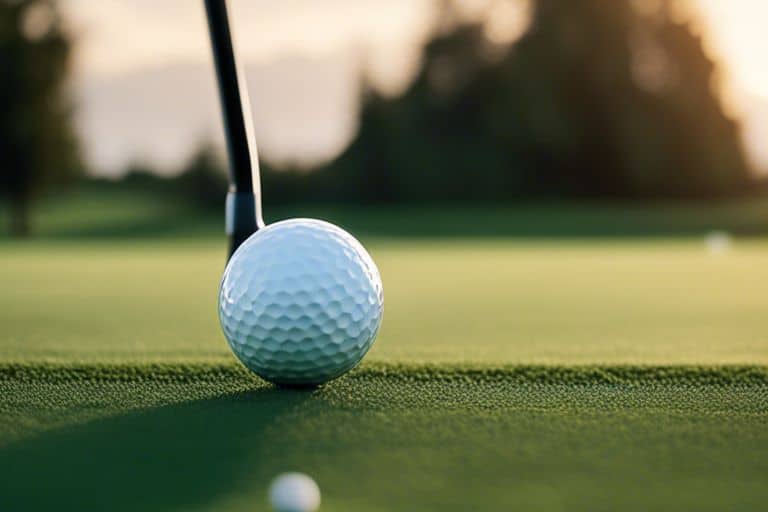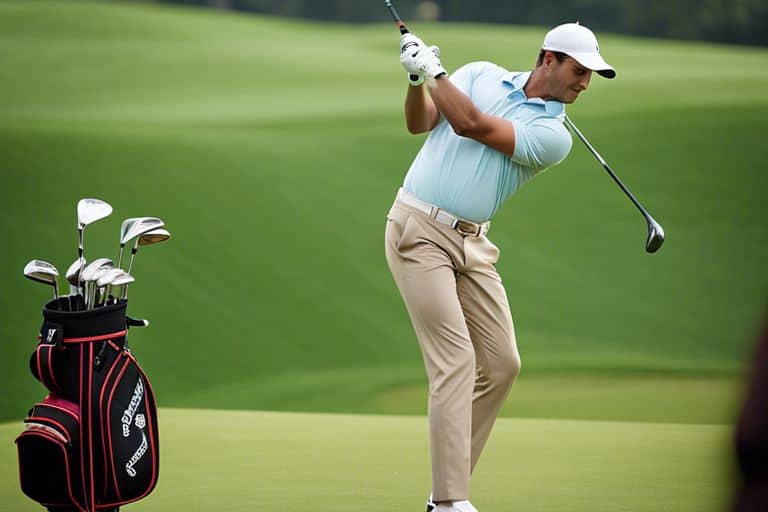What does it mean to "dub" a shot in golf?
Perplexed by the term “dub” in golf? Fear not, for I am here to guide you through the ins and outs of this golfing terminology. When a golfer “dubs” a shot, it means that they have completely misplayed the ball, resulting in a terrible, embarrassing outcome. It is the bane of every golfer’s existence, but fear not, as I will also be sharing some tips on how to minimize the chances of a “dub” and keep your game on track. Stay tuned for some essential advice that will help you elevate your golf game and avoid those dreaded “dubs.”
The Mechanics of a Dubbed Shot
The key to understanding what it means to “dub” a shot in golf lies in the mechanics of the swing. When you dub a shot, it means that you have made poor contact with the ball, resulting in a weak, low-flying shot that doesn’t travel the distance you intended. This typically happens when the clubhead strikes the ground behind the ball, causing the club to lose speed and momentum before making contact.
Common Mistakes Leading to a Dubbed Shot
One of the most common mistakes that leads to a dubbed shot is lifting the body out of the shot too early. When you lift your body up before making contact with the ball, it can cause the club to strike the ground behind the ball, resulting in a dubbed shot. Another common mistake is a lack of weight transfer during the downswing. If you fail to properly shift your weight from your back foot to your front foot, you may end up hitting the ground before the ball, causing a dubbed shot.
The Impact of Dubbing on Your Golf Game
Dubbing a shot can have a significant impact on your golf game. Not only does it result in a loss of distance and accuracy, but it can also shake your confidence on the course. Consistently dubbing shots can lead to frustration and a lack of enjoyment in the game. It’s important to address the mechanics and common mistakes that lead to dubbed shots in order to improve your overall performance on the course.
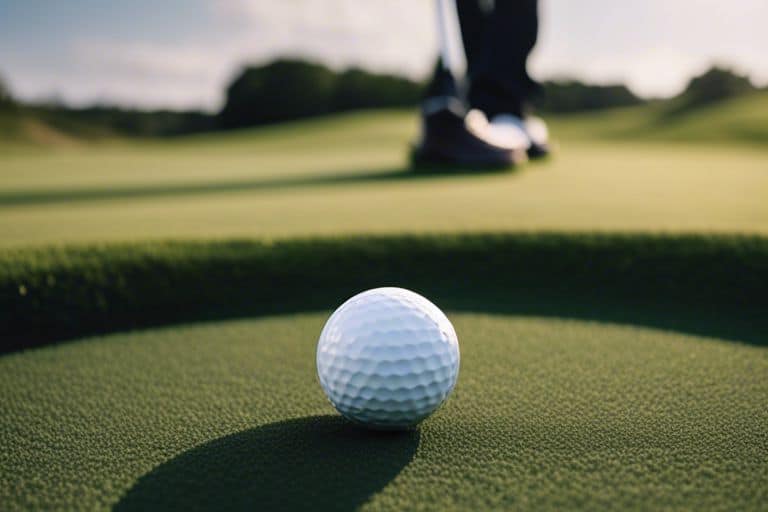
Improving Your Swing to Avoid Dubbing
Now that we understand what it means to “dub” a shot in golf, it’s essential to focus on improving your swing to avoid dubbing. A clean and efficient swing is crucial to making solid contact with the ball and avoiding embarrassing mishits on the course.
Techniques to Improve Contact
When it comes to improving contact with the ball and avoiding dubbing, a crucial technique is to focus on weight transfer during your swing. Making sure that your weight shifts from your back foot to your front foot as you swing through the ball can help ensure proper contact and prevent dubbing. Additionally, maintaining proper wrist and hand position throughout the swing is essential for clean ball striking. Keeping your wrists firm and maintaining a straight line from your lead arm through the club at impact will help you make consistent and solid contact with the ball.
Practice Drills for Consistency
One effective drill to improve your swing and avoid dubbing is to practice hitting balls off a teed-up club. Placing a club in the ground and hitting shots off the top of the club can help you focus on making clean contact with the ball without hitting the ground first. Another useful drill is to practice hitting half shots with a shortened swing. This can help you focus on proper weight transfer and hand position, leading to more consistent and solid ball striking.
By focusing on these techniques and practicing these drills, you can improve your swing and avoid dubbing shots on the course. Remember to always stay focused on proper form and technique, and don’t be afraid to seek guidance from a professional instructor if you find yourself struggling to make clean contact with the ball. Consistency and proper technique are key to avoiding dubbing and improving your overall game.

Mental Approach and Dubbing
Your mental approach to the golf game can greatly impact the likelihood of dubbing a shot. Dubbing a shot can be a result of various factors including lack of confidence, overthinking, and fear of failure. It is important to understand the psychological aspects of dubbing a shot and how to overcome them in order to improve your overall game.
The Psychological Effect of a Dubbed Shot
Dubbing a shot can have a significant psychological impact on a golfer. It can lead to a loss of confidence, increased anxiety, and frustration. Additionally, the fear of dubbing a shot can cause a golfer to overthink their swing and become tense, further increasing the likelihood of making a mistake. The mental aspect of the game is just as important as the physical, and it is crucial to learn how to manage and overcome the psychological effects of dubbing a shot.
Overcoming the Fear of Dubbing
Overcoming the fear of dubbing a shot requires a combination of mental and physical strategies. First and foremost, it is essential to build confidence in your abilities as a golfer. This can be achieved through consistent practice, positive self-talk, and visualization. Additionally, focusing on the present moment and not dwelling on past mistakes can help alleviate the fear of dubbing a shot. By developing a resilient mindset and maintaining a positive attitude, you can effectively overcome the fear of dubbing and improve your overall performance on the course.

Conclusion
Ultimately, the term “dub” in golf refers to a shot that is intentionally hit along the ground instead of lofting it in the air. This technique is often used when the ball is buried in deep rough or when faced with a tight lie. By delivering a low, running shot, you increase the chance of getting the ball closer to the green while minimizing the risk of getting stuck in the rough or other hazards. It’s a useful skill to have in your arsenal and can save you strokes in certain situations on the golf course.


